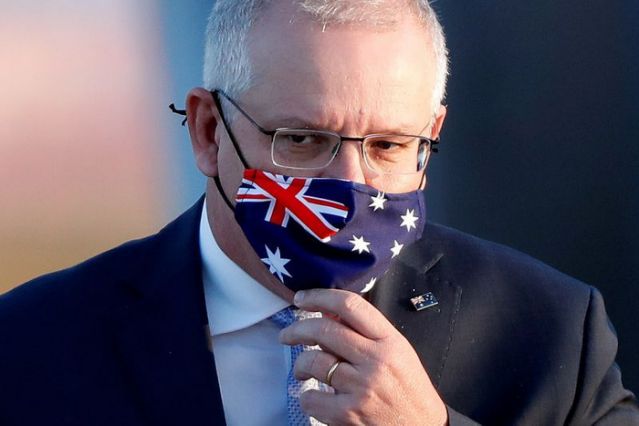
SYDNEY, (Reuters) – Australia will spend about A$38 billion ($28 billion) out to 2040 to expand its active defence personnel by a third to keep the country safe “in an increasingly uncertain global environment”, Prime Minister Scott Morrison said on Thursday.
Australia has been boosting its defence spending over the past few years as China looks to step up its presence in the Indo-Pacific region. Last year, Australia entered into a deal to buy nuclear submarines from the United States and Britain.”This is a significant investment in our future force,” Morrison said during a media briefing on Thursday. The planned expansion would see the number of defence personnel rise to 80,000, a level not seen since the Vietnam War.
Morrison, behind in opinion polls in an election year, has made national security a core issue and has attacked the opposition Labor party as being “soft” on China, viewed by two-thirds of Australians as more of a security threat than an economic partner.Opposition Leader Anthony Albanese in a speech on Thursday said Australia’s national security interests must “transcend the partisan divide”. He sharply criticised China for offering Russia relief from sanctions despite its war with Ukraine, a similar line to Morrison’s ruling coalition.
Defence Minister Peter Dutton said it was critical to supplement Australia’s defence capabilities to make it “a credible partner” with the United States, Britain and NATO.”If we are to rely on them, they need to rely on us,” Dutton told reporters.
Last week, leaders of the Quad grouping of countries – the United States, India, Australia and Japan – agreed that what is happening to Ukraine should not be allowed to happen in the Indo-Pacific, amid concerns about Taiwan, a self-ruled island claimed by China.”If people think that the ambitions within the Indo-Pacific are restricted just to Taiwan and that there won’t be knock-on impacts if we don’t provide a deterrent effect and work closely with our colleagues and with our allies, then they don’t understand the lessons of history,” Dutton said, without naming any country.






